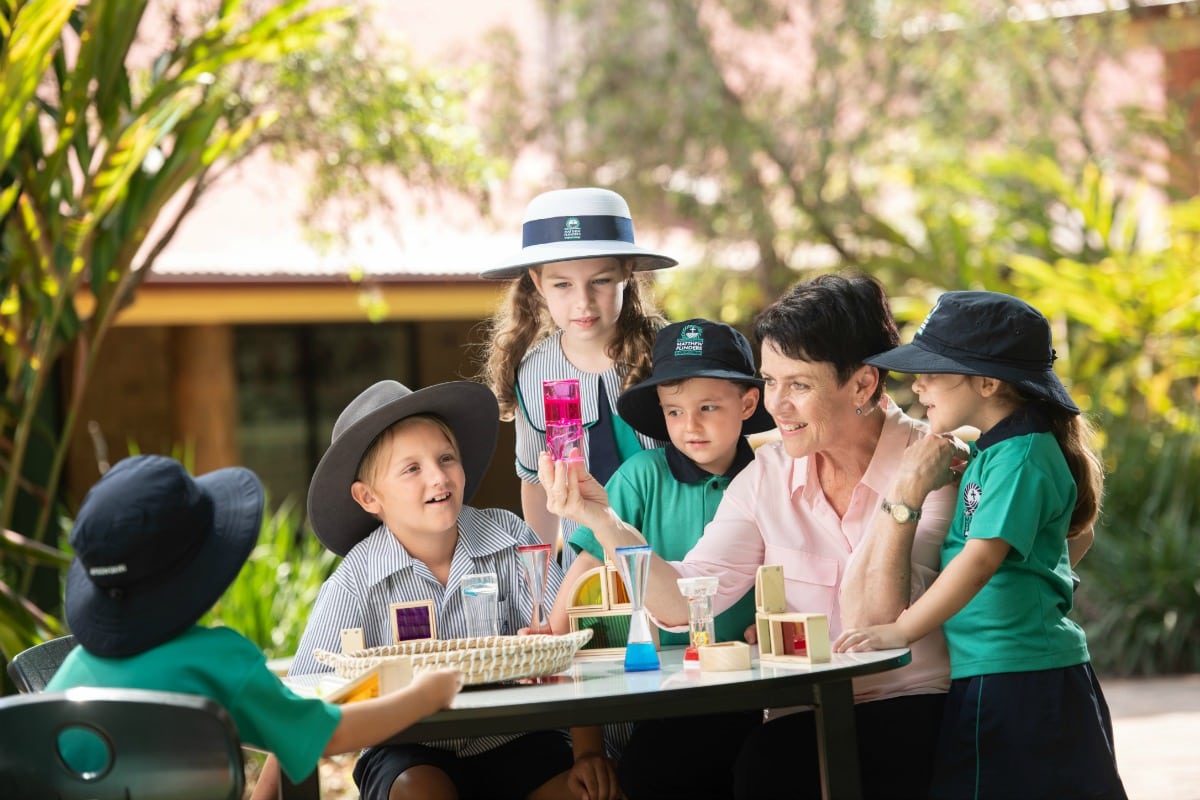The feeling of belonging can be a powerful thing. The Cambridge Dictionary definition of belonging is, ‘‘To be in the right or suitable place and to feel happy or comfortable with the situation’. This is very relevant for our school community as we begin the school year. We want all of our students and families to feel that they are in the right place, and comfortable in that space.
An explicit teaching focus on relationships and belonging at the start of a school year encourages every student to adapt to new groups and situations and to feel good about themselves and the group they are a part of. As a result, students begin to develop the trust that enables them to take risks and embrace everything on offer at Flinders.
There are many groups to which a person ‘belongs’. In a child’s world, this begins with family and then broadens to extended family, kindergarten, community, school and other groups and systems. Schools become quite central to a child’s life, so establishing a sense of belonging with this group is important for the wellbeing of each child. Baumeister and Leary (2005) state that the need to belong can be considered a fundamental human motivation and as a result “should stimulate goal-directed activity designed to satisfy it”. (p. 500). In the first few weeks of the year, teachers are providing opportunities for connection and relationship building within their classes. Games, activities and reflections aim for children to have that self-direction, as they are encouraged to seek out interpersonal contacts that will be the basis of possible relationships. Establishing this identity as part of a social group enhances the health and wellbeing of the people in these groups (Jetten, Haslam, Haslam, Dingle, Jones 2014). In this context, that is the wellbeing of our students.
 At Flinders, we assign ‘buddies’ to new students joining our school as a strategy to support students in making these important first connections. This week, several of our students who are new to Year 3 described what it felt like to belong.
At Flinders, we assign ‘buddies’ to new students joining our school as a strategy to support students in making these important first connections. This week, several of our students who are new to Year 3 described what it felt like to belong.
“Everybody likes you and you get on well with the class,” said Sebastian.
Isaac added, “You are making friends and everyone is being kind to you, and you are being kind to them as well.”
The boys said that the assigned buddies have helped them to settle by showing them around the school and helping them get to and from different places. Maddi is still building connections, and said that making more friends would help her to feel like she belongs. The group decided they would all help out by finding out what Maddi likes to do at playtime and then introducing her to students who like the same things.
The focus on ‘belonging’, forms part of our Wellbeing Curriculum, newly developed for 2020. It embeds the four College values: Courage, Compassion, Respect and Integrity. Stemming from our Pastoral Care Policy, the curriculum uses the framework of a Wellbeing Compass with four key directional points:
• Personal Development
• Relationships and Belonging
• Ethical Citizenship
• Academic Excellence
 The wellbeing of our students is central to our teaching and learning. For each student to be the best they can be at school, we need them to be happy, feel connected to their group and comfortable in the Flinders environment. The focus on Relationships and Belonging tends to be the pivot to other areas of learning and is a constant thread in the teaching and learning across the year.
The wellbeing of our students is central to our teaching and learning. For each student to be the best they can be at school, we need them to be happy, feel connected to their group and comfortable in the Flinders environment. The focus on Relationships and Belonging tends to be the pivot to other areas of learning and is a constant thread in the teaching and learning across the year.
Teachers will be sharing more about our Wellbeing Curriculum at our Primary Parent Information Evening this Thursday, and will also be keeping parents informed in the weekly posts on MyFlinders.
We look forward to working with students and families this term to establish a powerful sense of identity and belonging in our students, that will lead to many new opportunities and experiences.
References:
The Need to Belong: Desire for Interpersonal Attachments as a Fundamental Human Motivation: Baumeister R, Leary M (1995)
How Groups Affect Our Health and Well-Being: The Path from Theory to Policy: Jetten J, Haslam C, Haslam A, and Dingle G, Jones, JM ; 2014 accessed, 1 February 2020:
https://www.researchgate.net/publication
Cambridge Dictionary: https://dictionary.cambridge.org/dictionary/english/belong?q=belonging accessed 31 January 2020.

